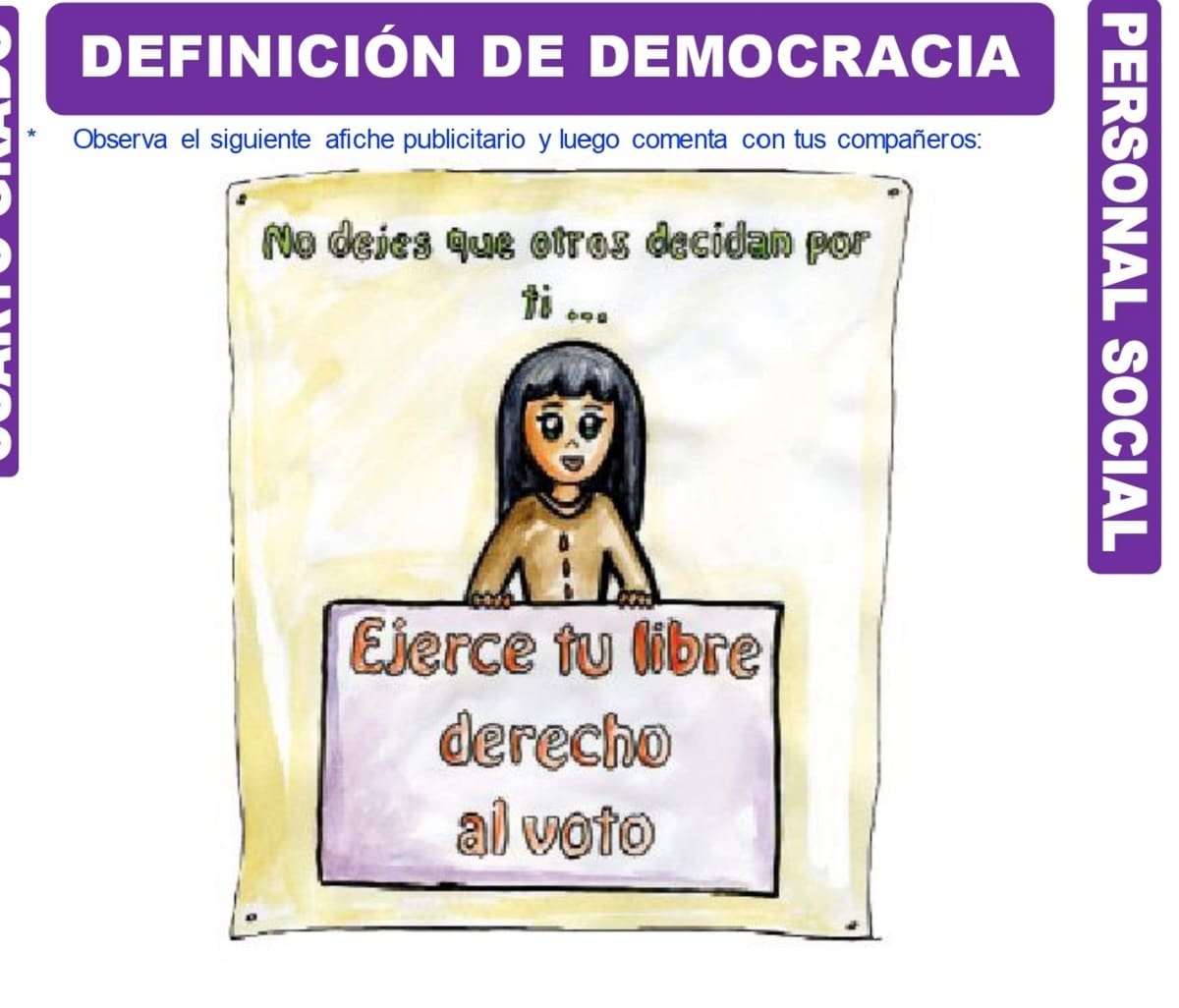
Today we value democracy, one of those abstract concepts, which are specified in a political system, but which above all implies a education in freedom and respect. All these concepts are difficult to explain to children, so, as we almost always tell you, it is best to live them at home, practice them and then give them a “theoretical” content. Because democracy is learned.
Democracy is related to Human rights, with the prevention of conflicts, with the common good.
How to create a democratic home

It is very important that at home the values and principles of democracy are taught, and that it is done from childhood. Boys and girls must be responsible and participate in some decisions. For example choosing the furniture in your room, what places you would like to visit, what clothes to wear for this or that event. With this we will be taking into account their opinions, they will be participants in family life, and they will feel even more integrated. The same happens with democracy, if we transfer it to the town, the city, the autonomous community and more.
And when you disagree with the decisions they have made, explain your reasons, in turn they will do the same. If you reach a perfect agreement, if not, you will have to vote. This is the principle of democracy, the dialogue.
With the vote the child will become familiar with this idea and will assess what the right to vote implies. With the vote comes the concept that the majority decides. Boys and girls must learn to respect the decision of the majority, to know that it affects the entire family group and the lives of others.
Democracy at school

The school is another ideal space to practice democracy, shared between adults and minors. Study plans promote different activities, at all levels and areas, which stimulate a democratic attitude, and the participation of all. In general, at school, within the classrooms, constructive debate, the exercise of freedoms, compliance with rules are promoted through sports activities, teamwork, planning of extracurricular activities, assemblies ...
The teaching of democracy in schools cannot be seen, only, as a curricular indoctrination, or historiscist development, but as a guided process of responsible participation. One of the responsibilities of teachers in schools is to inspire and enable these principles.
La democratic school it goes a step beyond democratic attitudes, and refers to the application of the participation of all in the management of the educational institution. Students, staff, and parents participate in decision-making. In some schools attending these meetings is compulsory, in others voluntary, and it can be done as an assembly or in representations.
Worksheets to work on the concept of democracy

If you want to support yourself in the classroom, or at home, to explain, after having lived what democracy is, we provide you with a guide to one of the records made by a team of professionals. The theme about democracy, in most of the Curriculum, is developed in the fourth grade of Primary.
The first thing you will find is its origin, that it was born in Greece, its definition as a form of government of the States, and more broadly as a form of social coexistence. In this file the types of democracy appear, and finally the conditions are indicated so that a government be democratic, with concepts such as freedom of expression, freedom to associate, political parties, elections, referendums, universal suffrage, equality, division of powers.
Some activities that you can propose is analyze an image or news from the Internet or the newspaper and find out whether or not it reflects a democratic act. For example, a photo of a demonstration. And do not forget to comment on the freedom of the press, essential for democracy to take place.